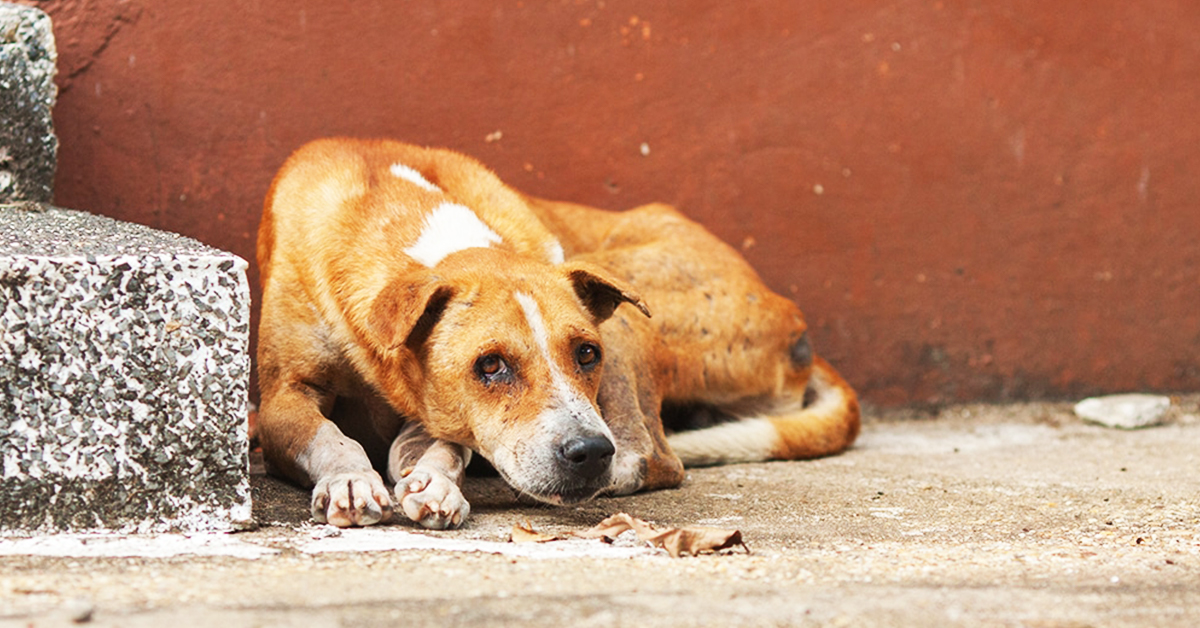Dogs need proper nutrition to achieve good health, energy, and longevity. A dog that doesn’t get what it needs suffers from malnutrition. Malnourishment might lead to other serious health complications in the life of a dog, including failing organs, problems with the immune system, and quality of life. Knowing some of the signs of malnutrition in dogs is essential for responsible pet owners.
1. Visible Weight Loss and Poor Body Condition
The most obvious sign of malnourishment in dogs is significant weight loss. A malnourished dog will appear underweight with prominent ribs, spine, and hip bones due to the lack of adequate fat and muscle. The dog may have a dull, thin coat, and its overall body condition will appear weak and frail.
2. Lethargy and Low Energy Levels
Malnourished dogs are usually extremely tired and show no interest in activities they previously enjoyed. Proper nutrition is necessary for energy production, and if a dog lacks essential nutrients, it will feel weak and lethargic. They sleep more than usual and show minimal enthusiasm for exercise or play.

3. Poor Coat and Skin Condition
A healthy diet is the key to a shiny and thick coat. Malnourished dogs usually have dry, brittle, and thinning fur. Their skin may become flaky, itchy, and prone to infections. Hair loss or bald patches can also occur, making their coat appear patchy and lifeless.
4. Gastrointestinal Problems
A malnourished dog may have frequent gastrointestinal problems, including diarrhea, constipation, or vomiting. The inability to digest food properly can further reduce the nutrient levels in the dog, thus worsening malnutrition. Chronic gastrointestinal problems are a sign of an underlying deficiency that needs to be addressed immediately by a veterinarian.
5. Weakened Immune System and Recurrent Illnesses
Without proper nutrients, a dog’s immune system weakens, making it more susceptible to infections and diseases. Malnourished dogs may frequently suffer from illnesses such as colds, skin infections, or respiratory issues. Their wounds may take longer to heal, and they may struggle to recover from minor illnesses.
6. Behavioral Changes and Depression
Malnutrition in dogs may lead to behavioral changes including irritability, aggression, anxiety, or depression. Poor nutrition causes the malfunction of the brain and results in mood swings and mental deterioration. A malnourished dog might become shy, avoid other people, or show unusual aggressiveness.
7. Brittle Nails and Weak Teeth
Nutritional deficiency may further cause brittle nails which crack easily. The teeth of the dog will also weaken, discolor, or decay easily. Some other dental problems that are often associated with the aforementioned condition include halitosis, gingivitis, and excessive accumulation of tartar.

8. Muscle Weakness and Inability to Move Around
Inadequate proteins and vitamins in a dog’s diet will cause muscle wasting and weakness. A malnourished dog may have problems standing, walking, or climbing stairs. In the long term, their muscles may break down, and mobility and strength generally decline.
9. Poor Puppy Growth
Puppies need nutrient-enriched diets to grow healthy. Malnutrition in the early life can result in stunted growth, delayed development, and permanent health issues. Puppies who are malnourished might be smaller than average and not develop properly in both body and mind.
10. Organ Failure and Serious Health Conditions
Long-term malnutrition may cause serious damage to the organs, including liver and kidney failure. In addition, a heart may become weak due to a lack of essential nutrients, leading to cardiovascular problems. Malnutrition, if not treated, can eventually cause life-threatening conditions.
Causes of Malnourishment in Dogs
Knowing the causes of malnourishment can help prevent and treat this condition. Some of the common causes include:
- Poor Diet: Feeding low-quality dog food that lacks essential nutrients.
- Neglect or Abuse: Dogs that have been abandoned or mistreated often suffer from malnutrition.
- Medical Conditions: Certain illnesses, such as parasites, infections, or metabolic disorders, can hinder nutrient absorption.
- Dental Problems: Dogs with dental pain may struggle to eat properly, leading to malnourishment.
- Aging: Older dogs may need specialty diets to be healthy.
- Food Allergies: Some canines are allergic to certain ingredients, hence not facilitating the absorption of essential nutrients.
- Maladaptive Feeding Schedule: A poor feeding schedule or irregular intake leads to nutrient deficiencies over time.
- Intestinal Parasites: Worms and other parasites can pilfer nutrients from the body of a dog, adding up to malnutrition.
Treat and Prevent Malnourishment in Dogs
If your dog appears to be malnourished, you can follow these steps for immediate improvement in their health:
Seek Veterinary Expertise: See a vet. A vet would evaluate the overall condition of the dog and develop an appropriate diet plan.
- Good Nutrition: Ensure a well-balanced diet which contains proteins, healthy fats, vitamins, and minerals.
- Monitor Portion Sizes: Ensure your dog receives the right amount of food based on their age, weight, and activity level.
- Hydration: Ensure your dog has constant access to clean, fresh water.
- Regular Veterinary Check-Ups: Routine health check-ups can help detect and prevent malnutrition-related issues.
- Deworming and Parasite Control: Regular deworming can prevent nutrient deficiencies caused by parasites.
- Hydration: Ensure your dog has constant access to clean, fresh water.
- Supply Supplements: When necessary, supply vitamin and mineral supplements to augment nutrition.
- Provide Healthy Feeding Habits: Refrain from feeding table scraps and encourage healthy eating habits on your dog’s part.
- Set a Feeding Schedule: Provide a schedule that will make your dog accustomed to the feeding pattern so it eats at the right times.
Prevention Is Key
Proper diet and regular vet check-ups can best fight malnourishment. Make sure your dog eats the best food possible, in proper balance according to age, size, and activity level. For a rescue dog or one recovering from malnourishment, patience and consistency are a must.
The important thing is to know the signs early and take appropriate action so your dog gets all the nutrition required to live a happy, healthy life.
Related: Do Dogs Get Cold at Night? Understanding How to Keep Your Dog Warm

